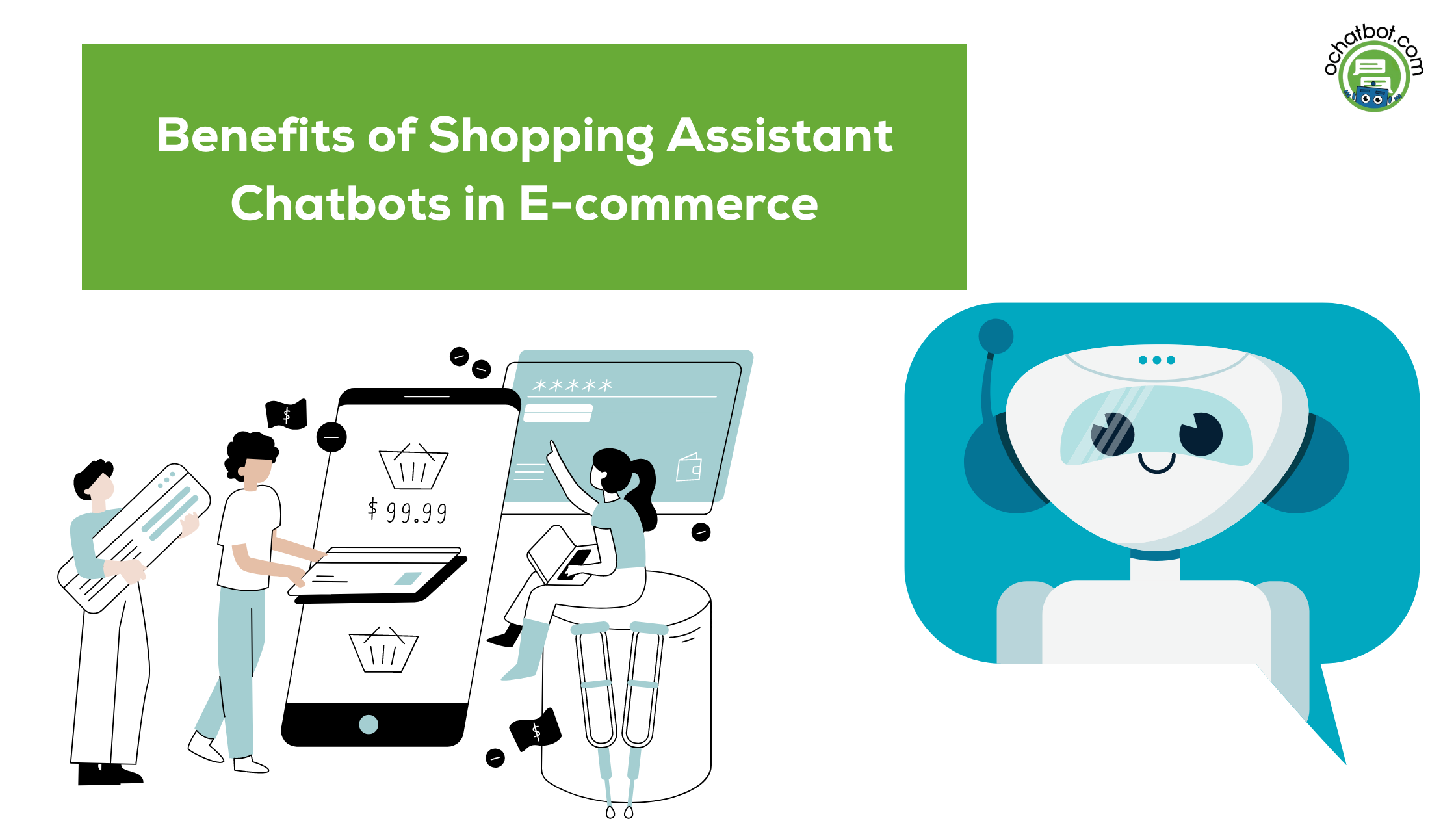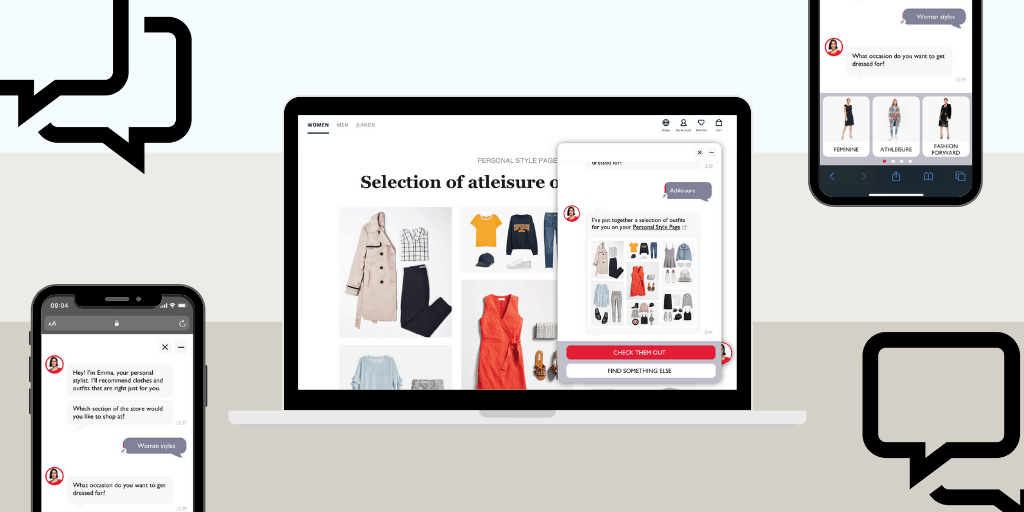The Role of AI Chatbots in Online Retail: Revolutionizing Customer Experience and Sales
The retail industry is undergoing a digital transformation, and one of the most significant technological advancements driving this change is Artificial Intelligence (AI). Among the various AI innovations, AI chatbots have emerged as a game-changer in online retail, transforming the way businesses engage with customers, enhance shopping experiences, and drive sales.
AI-powered chatbots are no longer just a novelty; they have become an integral part of e-commerce strategies. These smart assistants are designed to simulate human conversations, providing customers with instant, personalized assistance. In this article, we’ll dive into how AI chatbots are reshaping the online retail landscape, their benefits, and why your business should adopt them to stay ahead of the competition.

What Are AI Chatbots?
AI chatbots are virtual assistants powered by Artificial Intelligence and machine learning algorithms. These bots can interact with customers through text or voice-based conversations, simulating human-like interactions. By leveraging Natural Language Processing (NLP), AI chatbots can understand customer inquiries, provide accurate answers, and even suggest products based on user behavior and preferences.
In the context of online retail, AI chatbots help automate tasks that were traditionally handled by human agents, such as answering customer queries, recommending products, assisting with orders, and even processing payments.
How AI Chatbots Enhance Customer Experience in Online Retail
1. Instant Customer Support
One of the most significant benefits of AI chatbots in online retail is their ability to provide instant customer support 24/7. Unlike human agents, who can only work limited hours, AI chatbots are always available to assist customers at any time of day. Whether it’s early in the morning or late at night, customers can interact with chatbots and receive real-time responses to their questions.
2. Personalized Shopping Experience
AI chatbots can enhance the shopping experience by offering personalized recommendations based on customers’ browsing history, previous purchases, and preferences. This level of personalization helps retailers improve customer satisfaction, increase conversion rates, and boost average order values.
For example, if a customer is browsing a clothing store and looking at shirts, the AI chatbot can recommend similar products or complementary items, such as pants or accessories, thereby enhancing the shopping experience and encouraging customers to make additional purchases.
3. Streamlined Purchasing Process
AI chatbots help simplify the checkout process, reducing friction for customers and improving conversion rates. They can guide users through the purchasing journey, assist with product selection, suggest payment options, and even help with order tracking. By making the buying process more efficient and user-friendly, chatbots help businesses increase their sales and reduce cart abandonment rates.
4. Automated FAQs and Order Tracking
Another key feature of AI chatbots is their ability to handle frequently asked questions (FAQs) and provide updates on order statuses. Customers no longer need to call or email support for basic inquiries, as chatbots can provide answers to questions about product availability, shipping times, return policies, and more.
Additionally, AI chatbots can assist with order tracking, allowing customers to get real-time updates on the status of their orders. This not only enhances customer satisfaction but also reduces the workload on human customer service agents.

The Benefits of AI Chatbots in Online Retail
1. 24/7 Availability
As mentioned earlier, one of the most significant advantages of AI chatbots is their round-the-clock availability. With chatbots, retailers can offer support and service to their customers at any time, regardless of time zones. This is especially important for global retailers with customers from different regions.
2. Cost-Efficiency
AI chatbots can significantly reduce operational costs for retailers. By automating customer interactions, chatbots help businesses save on labor costs associated with hiring and training customer service representatives. Moreover, chatbots can handle a large volume of inquiries simultaneously, ensuring that customers don’t have to wait in long queues.
3. Improved Customer Engagement
AI chatbots can engage customers in meaningful conversations and guide them through their shopping journey. By offering personalized product recommendations, answering questions, and resolving issues, chatbots help create a more engaging shopping experience. This not only keeps customers satisfied but also builds brand loyalty and encourages repeat purchases.
4. Scalability
As your retail business grows, scaling customer support can become challenging. AI chatbots can handle a high volume of interactions without the need for additional human agents. This scalability ensures that your business can provide consistent support, even during peak shopping periods like Black Friday or Holiday Sales.
5. Enhanced Data Collection and Insights
AI chatbots can gather valuable data about customer behavior, preferences, and pain points during their interactions. Retailers can analyze this data to gain insights into customer needs, which can be used to improve products, services, and marketing strategies. Chatbots help create a data-driven approach to customer service, enabling businesses to make informed decisions.
AI Chatbots and Their Impact on Sales and Conversions
1. Increasing Conversion Rates
AI chatbots can drive higher conversion rates by offering personalized product recommendations, assisting with the checkout process, and answering any questions that may arise during the purchase journey. By providing real-time support and recommendations, chatbots encourage customers to complete their purchases, ultimately boosting sales.
2. Reducing Cart Abandonment
Cart abandonment is a major challenge for online retailers, with studies showing that approximately 70% of online shopping carts are abandoned before purchase. AI chatbots help reduce cart abandonment rates by engaging customers who may be hesitant to complete their transactions. They can offer assistance with payment options, address customer concerns, and even provide discounts or promotions to incentivize the final purchase.
3. Upselling and Cross-Selling
AI chatbots are skilled at upselling and cross-selling products to customers. By analyzing customer data, chatbots can suggest higher-end products, bundles, or complementary items that increase the average order value. This not only boosts sales but also enhances the shopping experience by introducing customers to products they may not have discovered otherwise.
4. Handling Multiple Customers Simultaneously
Unlike human agents, who can only handle one customer at a time, AI chatbots can engage with multiple customers simultaneously. This allows businesses to scale their customer support without compromising on the quality of service. Whether you have hundreds or thousands of customers, chatbots can handle all interactions efficiently and effectively.
Challenges of AI Chatbots in Online Retail
1. Initial Setup and Integration
While AI chatbots offer numerous benefits, the initial setup and integration with existing e-commerce platforms can be a challenge. Retailers must ensure that their chatbot is seamlessly integrated with their website, payment systems, and customer service tools to provide a smooth experience for both customers and businesses.
2. Ensuring Accurate Responses
AI chatbots rely on machine learning and Natural Language Processing (NLP) to understand and respond to customer queries. However, ensuring that the chatbot can accurately understand and answer complex or ambiguous questions can be challenging. Businesses must continually train their chatbots to improve their accuracy and ensure they provide helpful responses.
3. Balancing Automation with Human Support
While AI chatbots can handle a large volume of queries, there will still be situations where human intervention is necessary. Retailers must strike the right balance between automation and human support to ensure customers receive the best possible service. A chatbot should be able to escalate issues to human agents when necessary, ensuring that customers are not left without support.
How to Implement AI Chatbots in Your Retail Business
1. Choose the Right Chatbot Platform
There are various chatbot platforms available, each offering different features and capabilities. Retailers must carefully evaluate the options and choose a platform that aligns with their business needs and goals. Popular AI chatbot platforms include Tidio, LiveChat, and Intercom.
2. Customize the Chatbot for Your Brand
Once you’ve selected a chatbot platform, it’s essential to customize the chatbot to match your brand’s voice and personality. Whether you want your chatbot to be friendly, professional, or quirky, the chatbot should reflect the values and tone of your business. This helps create a more seamless and authentic customer experience.
3. Train Your Chatbot
To ensure that your chatbot provides accurate and helpful responses, it’s important to train it regularly. Feed it with a wide range of questions, product information, and customer inquiries to improve its ability to understand and respond to various scenarios. The more data your chatbot has, the better it can assist customers.

Conclusion
AI chatbots are revolutionizing the online retail experience, offering businesses a cost-effective, scalable, and personalized way to engage with customers. From 24/7 customer support to increased conversions and reduced cart abandonment, chatbots provide numerous advantages that can help your business stay competitive in the fast-paced e-commerce world.
If you’re not yet using AI chatbots in your online store, now is the time to start. With the right strategy and tools, you can enhance your customer experience, boost sales, and build stronger relationships with your customers.
FAQs
**Q:
How do AI chatbots improve the customer experience in online retail?**
A: AI chatbots provide instant support, offer personalized recommendations, assist with order tracking, and help streamline the checkout process, leading to a better overall shopping experience.
Q: Can AI chatbots replace human customer service agents?
A: While AI chatbots can handle many customer interactions, there are still situations where human support is necessary. It’s important to strike a balance between automation and human assistance.
Q: Are AI chatbots expensive to implement?
A: The cost of implementing an AI chatbot depends on the platform and features you choose. However, the long-term benefits, such as cost savings on labor and improved customer engagement, often outweigh the initial investment.
Q: How do I train my AI chatbot?
A: You can train your chatbot by feeding it with various customer queries, product information, and frequently asked questions. Continuous training is necessary to improve its accuracy and responses.

